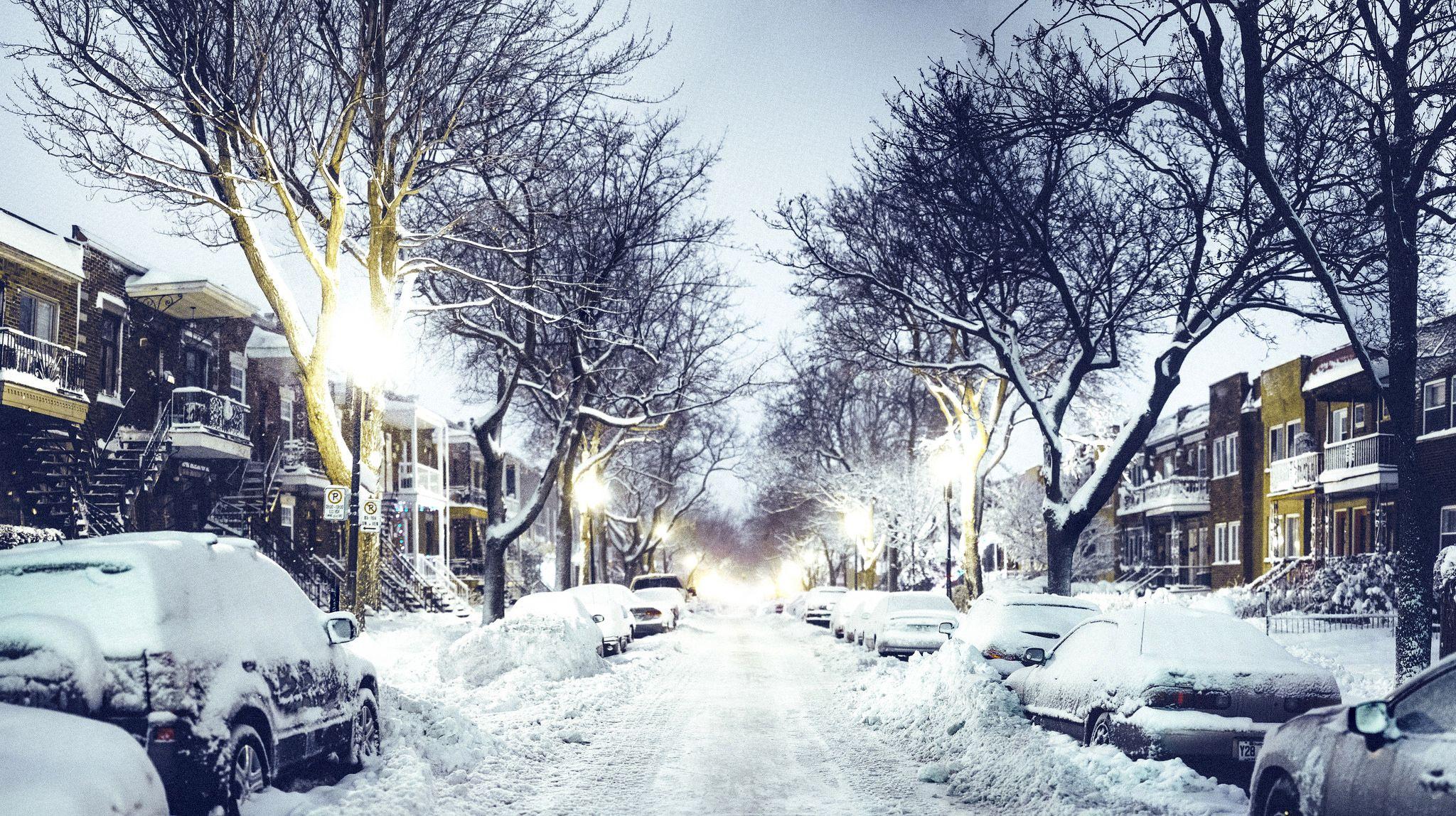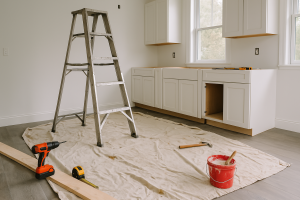Preparing your home for the winter
Now that fall is officially here, it’s time to prepare for those cold winter months ahead. Preparing your home for winter will not only help keep you warm and cozy but also lower your utility bills, protect your investment and avoid any unwanted surprises.
Heating, Ventilating, and Air Conditioning
- It is very important to have a CMEQ certified technician to come and inspect/service your furnace or heat pump before you use it. The technician will ensure that the system is clean and in good repair and that it can achieve its manufacturer-rated efficiency. The inspection also measures carbon-monoxide leakage. The earlier you arrange an appointment with a licensed heating professional the better, as they are liable to be booked up as the season approaches.
- Before turning on your heating system, first, ensure that there is nothing flammable stored near the system
- Change out those old furnace filters. These should be changed every 1 to 3 months. More so if you have pets. Having clean air filters in your furnace maximizes efficiency and improves indoor air quality.
- Make sure the system is running safely. Investigate any odd sounds or burning odors. Bear in mind, dust will collect on the heating elements over the summer and burn off when the system is turned on. This is normal and the smell should dissipate rather quickly.
- Open all heating vents around the house, making sure that the heat is distributed evenly.
- If your home is radiator heated, be sure to bleed any valves on the hot- water radiators. This will increase heating efficiency by releasing air that may be trapped inside.
- Automate your thermostat. If your thermostat isn’t programmable, you can pick one up at your local hardware store. They are relatively affordable. The goal here is to program it so it only kicks on when you need it, saving big bucks on your hydro bill.
- Believe it or not, those ceiling fans can also come in useful during the winter months. Making sure that fans are switched to the reverse or clockwise position, will blow warm air down to the floor for enhanced energy efficiency and comfort.
- Always play it safe, and make sure that any smoke alarms and carbon monoxide monitors are in working order.
- Have your chimney and fireplace inspected by a chimney service before using it. A cleaning is important because chimney flues that have become lined with creosote are fire hazards.
- Check your fireplace for drafts. If it’s cold despite the damper being closed, the damper itself may be warped, worn, or rusted. A good chimney inspector should be able to verify this for you.
Insulating and Sealing Up Your Home
One of the best ways to keep your home cozy warm during the winter all the while keeping your hydro bills down is ensuring that it is insulated and sealed as effectively as possible.
Windows and Doors
- Be sure to check all the weather stripping around windows and door frames for leaks in order to prevent heat loss. If you feel any drafts around the window or doors, be sure to caulk inside and out in order to keep heat from escaping.
- Examine wooden window frames for signs of rot or decay. Rotted or decaying wood is often retaining water, and when that water freezes and thaws over the winter months the issue will only worsen.
- Now is the time to install your storm windows and doors, replacing any screens in your home. It is especially important to have storm windows if the windows in your home are older and not constructed of modern insulated glass
Gutters, Roof, and Drains
- Avoid ice dams – where water from melted snow refreezes in the gutters and seeps in under the roof, soaking interior walls. A well-insulated and ventilated attic will save you both on your heating bill and prevent ice dams.
- Consider adding a second layer of insulation to your attic. R-30 insulation is considered the minimum a home should have. Newer homes are more likely to conform to this minimum, but if your house is older it is probably time to add insulation.
- Be sure to inspect your roof and replace damaged, loose or missing shingles. Not doing so may cause leaks during a winter storm.
- Clear your gutters of any debris and ensure that downspouts extend away from the house by at least 5 feet to prevent flooding of the foundation and water damage from snowmelt.
- Clear all outdoor drains of debris, leaves, and sediment in order to prevent blockage.
- Wrap water pipes in your basement and crawl spaces with insulation sleeves to slow heat transfer.
Outdoors
- Pay close attention to the trees around your property. Hire a professional to trim overgrown or dead branches back from the house and electrical wires in order to prevent iced-over or wind-swept branches from causing property damage or a power problem.
- Turn off exterior faucets as these pipes can burst if they freeze. Drain water from outdoor pipes, valves, and sprinkler heads to protect against pipe bursts.
- If you have one, it’s important to drain your irrigation system. You can usually hire a professional to do this if you don’t know how usually for under a hundred bucks.
- Check out the condition of the walkways, steps, and driveway of your home to make sure they are free of cracks and low-lying areas where water can accumulate. These should be repaired to prevent water from penetrating and freezing, resulting in larger cracks in the future.
- Inspect decks for splintering, decay, or insect damage. By cleaning the leaves, dirt, and debris from between the boards, you will avoid mold and mildew
- Plants should be pruned back before the winter in order to encourage healthy growth in the spring. Most of the pruning should be done after the leaves have changed colour.
- In order to winterize your lawn, you should reseed and fertilize at least twice before winter. Also, be sure to keep your lawn properly raked and free of debris in order to avoid “snow mold disease”.
Whether you intend to sell your home or stay for many years, it is important to carry out seasonal maintenance and repairs. Staying on top of things will help you to avoid costly problems later on down the line. Not only will regular upkeep maintain the comfort and look of your home, it will help you to maximize its value if you decide to sell.
Hopefully, you have found these Fall Maintenance Tips useful. Remember, by being proactive, you’ll lower your energy bills, increase the efficiency, and make your property safer.
If you have any questions and would like to learn more about the current real estate market, you can reach us anytime at:
514-781-2121
info@angelalangtry.ca



